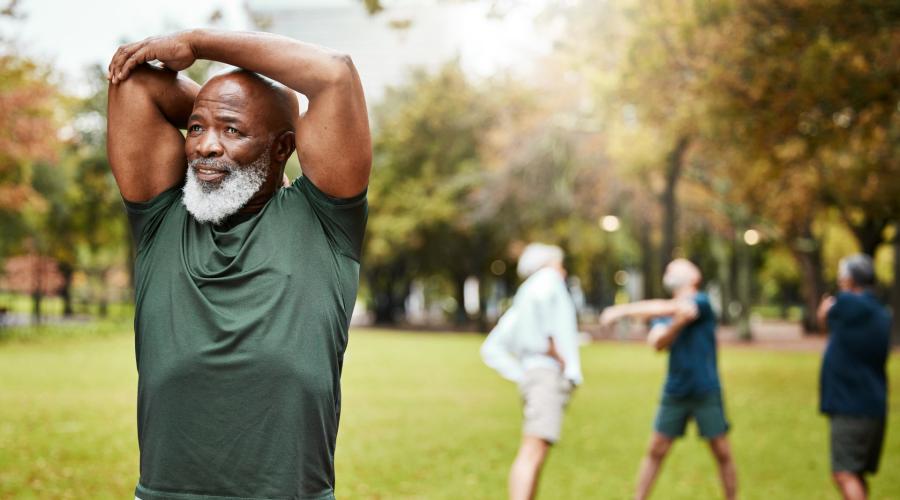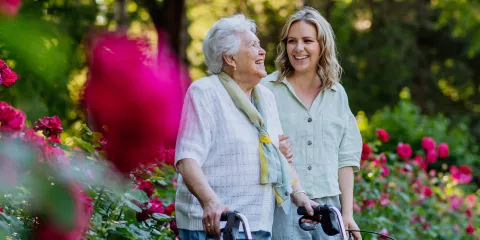
With age comes experience, maturity and an appreciation for doing things that will help us stay well. Here are four habits common among healthy people over the age of 50.
Habit 1: Mental Activity
Intentionally stimulating the mind is an important habit of healthy older people.
You can stay mentally active in many fun ways. Playing board games, learning a new hobby, taking a class, or joining a book club are all ways to increase brain activity. This, in turn, helps activate natural chemicals such as dopamine, the “feel good” neurotransmitter that helps us see rewards and work toward them.
If you’re retired, a part time job can be a great way to stay sharp and maintain social relationships, which are important to good health. Many older adults have certain characteristics prized by employers, including good judgment and a commitment to quality.
Habit 2: A Colorful Diet
Eating a healthy diet rich in fresh fruits, leafy vegetables, fish (a few times a week) and nuts can help support mental health, increase energy levels and support a healthy immune system as we get older.
The way in which our bodies absorb and use certain nutrients changes as we get into our 50s.
A healthy diet should include as many whole (unprocessed) foods as possible. Try to eat as many colors as you can; this can increase the variety of nutrients you eat each day.
Eating in this way isn’t just good for your waistline. It often goes hand-in-hand with a more positive outlook and can help boost self-esteem.
Remember that the way in which our bodies absorb and use certain nutrients changes as we get into our 50s.
For example, older adults make less Coenzyme Q10 (CoQ10) and their bodies have a harder time converting it into a nutrient called Ubiquinol. The Ubiquinol form of CoQ10 plays a critical role in making the cellular energy our organs need.
Ubiquinol supplements are sold in many vitamin stores and, along with diet and exercise, can be a great way to promote heart health.
Habit 3: Love and Deep Companionship
There are many theories of love beyond 50 – what some, including The Huffington Post, have called “one of the most studied and least understood areas in psychology” – but most agree that it’s an important habit of healthy aging.
Researchers at Harvard University (in one of the longest-running studies of aging) have collected evidence that romantic relationships are an important factor in staying well as we grow older.
A deep, long-standing bond between two people - romantic or otherwise - encourages physical health and supports overall self-confidence.
More recently, they have explored the role that marriage plays in aging well.
“The main developmental task for younger couples is managing conflict,” they write. “The main task for older couples is mutual support. Being in a good marriage buffers you from the effects of pain and disability.”
“Mature love can be the most powerful, passionate love you’ve ever experienced,” writes Laura Day, a best-selling author and self-help guru.
Of course, romantic love sometimes transitions into companionship after decades of marriage.
That’s not necessarily a bad thing. Such a deep, long-standing bond between two people – romantic or otherwise – encourages physical health and supports overall self-confidence.
Habit 4: Moderate Exercise
Moderate daily exercise (for example, walking or swimming 30 minutes a day) reduce the risk of certain diseases and conditions common with aging. This type of physical activity may also help you manage various health conditions common among older adults.
Rob Rosen, a 59 year old in Vermont, said that exercise helps him stay well in various ways.
“Exercise helps me as much emotionally as it does physically,” Rosen said, adding that his good health is also related to staying open to new challenges and learning new things.












